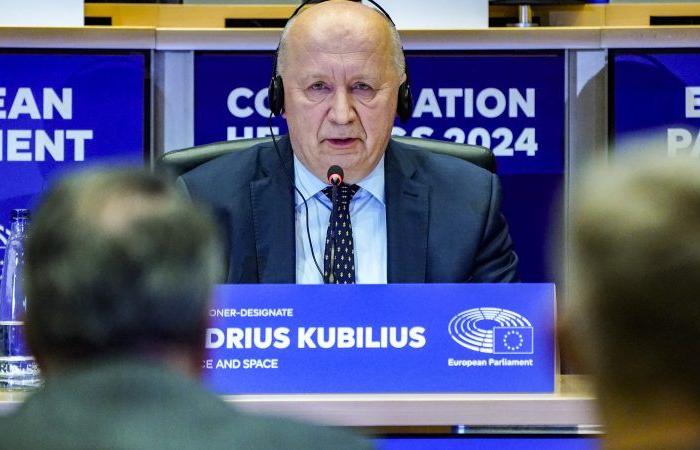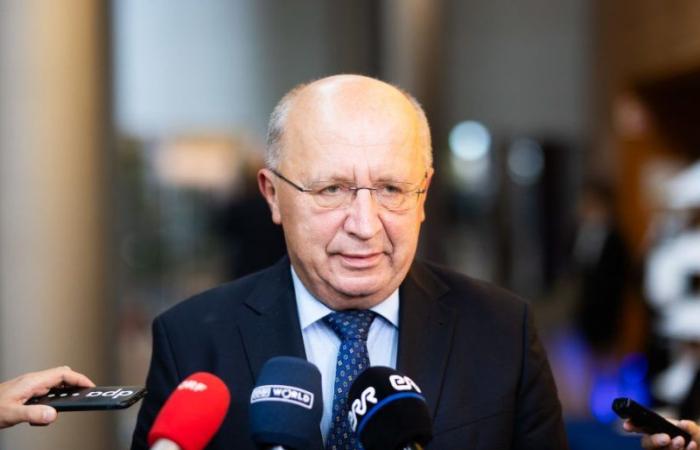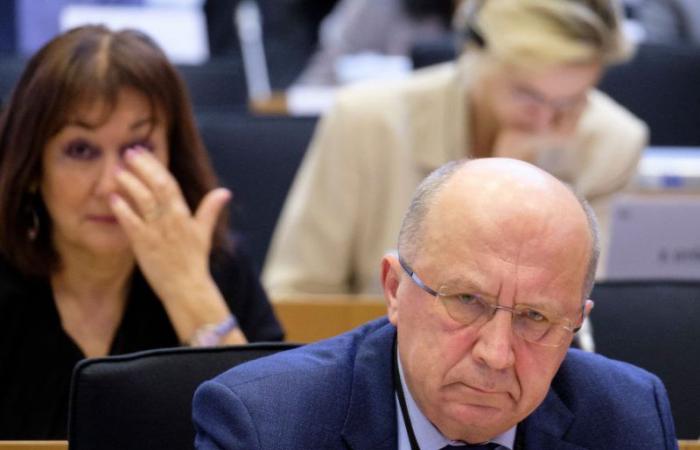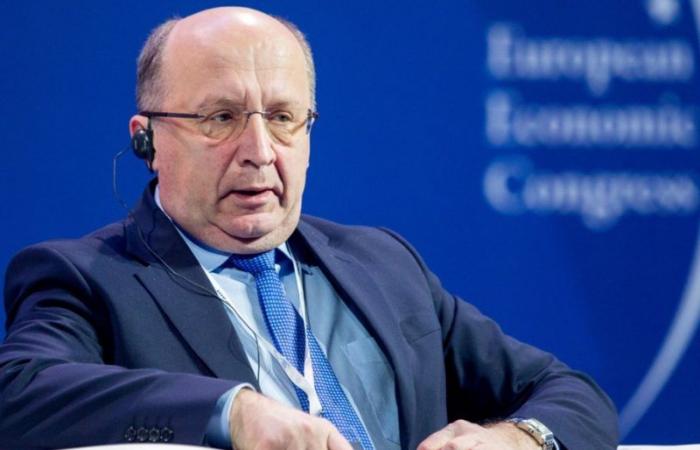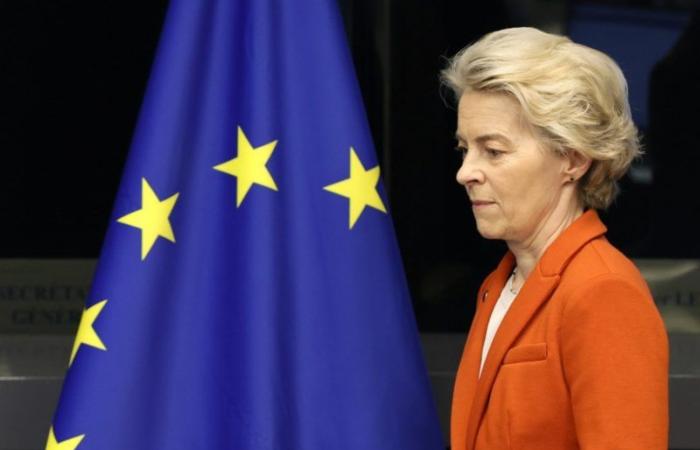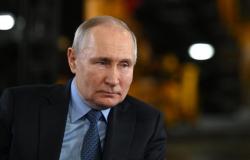The Commissioner-designate for Defense and Space, Andrius Kubilius, assured MEPs during his hearing on Wednesday 6 November that, despite the uncertainties surrounding the future Trump administration, he was committed to preparing Europe for all threats potential military forces, including possible Russian aggression.
During his hearing before the European Parliament, the commissioner proposed by Lithuania, to whom Commission President Ursula von der Leyen entrusted the Defense and Space portfolios, declared that defense would be one of the priorities of the next European executive.
At the end of this hearing, Andrius Kubilius was confirmed in his functions by a two-thirds majority. He was supported by members of his political group, the European People’s Party (EPP), but also by Socialist and Democratic MEPs (S&D), Greens, centrists and liberals (Renew), as well as Conservatives and European Reformists (CRE), according to two sources.
The far-right groups Patriots for Europe, Europe of Sovereign Nations and the Left group (GUE/NGL) voted against him.
Many challenges
Andrius Kubilius told MEPs that it was necessary “urgently strengthen the preparedness of the European Union (EU) for potential military aggression. Although at the moment it is difficult to predict what the new US administration’s next policies will be, we can anticipate that in the coming decades the United States will focus more on the strategic challenge posed by China ».
The first task of the future commissioner will be to strengthen Europe’s preparedness for the possibility of military aggression. According to recent intelligence assessments, Russia could quickly test the resolve of the EU and the North Atlantic Treaty Organization (NATO).
To effectively counter the Russian threat, the aspiring Lithuanian commissioner will therefore have to work on projects bringing together all member states, such as a defense shield against air attacks or on a system capable of countering cyberattacks.
Its second challenge will be to create a European defense market, which is currently very fragmented, leading to duplication and poor interoperability. As highlighted in the recent report written by the Finn Sauli Niinistö at the request of Commission President Ursula von der Leyen, the EU’s defense capabilities do not meet needs.
“This will involve promoting the use of NATO standards, and supporting the recognition of certifications in order to guarantee interoperability with the West”he declared.
The Commissioner intends to review and evaluate the Defense Public Procurement Directive, improve market access for all companies, in particular SMEs, in order to stimulate innovation and encourage greater cross-border cooperation that can achieve economies of scale.
He also hopes for a significant increase in public and private investment in research and development. Most importantly, he said, cross-border purchases within the EU should be equivalent to purchases domestically.
“We need a defense EU not to wage war, but to maintain peace. This requires a paradigm shift and systemic reform of European defense, based on cooperation between Member States, and with NATO. There is no competition between NATO and the EU on defense issues »he insisted.
Spend more, spend better, spend together
According to Mario Draghi’s report on Europe’s competitiveness, the European defense industry needs 500 billion euros over the next decade to remain competitive. For Andrius Kubilius, the EU should therefore optimize its financial support, increase national investments and immediately exploit existing assets.
Once commissioner, he will present, in the first 100 days of his mandate, a white paper on the future of European defense with the President of the European Commission, Ursula von der Leyen.
“We will define a new approach to defense and identify investment needs to deliver a full spectrum of European defense capabilities based on joint investments in Member States for the most extreme military contingencies”he said.
“We must spend more, spend better, spend together”he continued.
Ukraine is the best investment for Europe’s security
Andrius Kubilius was born in Lithuania, during the Soviet period. After campaigning for his country’s independence, he became Prime Minister and was for several years an influential member of the European Parliament’s Foreign Affairs Committee.
The Lithuanian candidate said the EU needed to do more to support kyiv and pledged to support the integration of Ukraine and the EU’s defense and space industries.
“The best investment in European security is investment in Ukraine’s security”he argued.

Andrius Kubilius’ commitments on the Space aspect
On the second part of his portfolio – namely Space – the Lithuanian refrained from detailing concrete objectives.
He pledged to work closely with MEPs in the European Parliament’s Security and Defense (SEDE) Committee, to support small and medium-sized enterprises (SMEs) in the defense and space sectors, and to increase “significantly” the EU defense budget, which amounts to 14 billion euros over seven years, without giving a figure.
He referred certain questions to NATO officials or to the future High Representative of the EU for Foreign Affairs and Security Policy, Kaja Kallas, stressing that he did not have the necessary authority to deal with these questions himself.
He nevertheless supported the adoption of European space legislation, which he wishes to present at the beginning of 2025, in order to harmonize the space industries of the 27 Member States. Initially scheduled for the first quarter of 2024, this legislation has been postponed several times.
Recognizing Europe’s lag in launch capabilities compared to Elon Musk’s SpaceX, the Lithuanian pledged to develop space hubs and diversify launch services.
A proponent of technological sovereignty, he then highlighted the importance of securing supply chains, particularly for essential raw materials.
He also expressed support for the implementation of the EU’s 5G Security Toolkit, which aims to restrict telecommunications equipment from high-risk suppliers such as Chinese companies Huawei and ZTE.
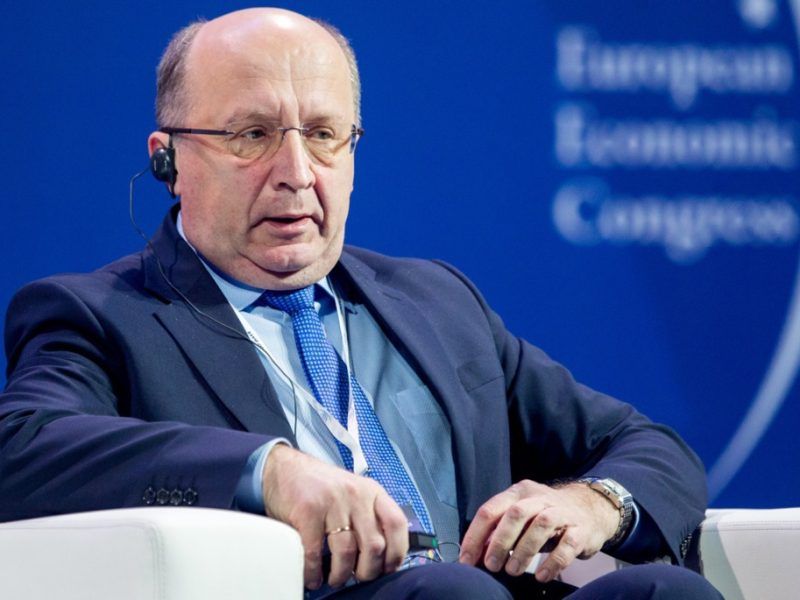
Five priorities for the EU space sector
Andrius Kubilius also presented five main priorities for the European space industry: diversifying launch capacities, unifying the space market thanks to the future European space law, increasing support for start-ups and to scale-ups (companies having passed the stage of start-ups) of the space sector, increase the space budget during the next multiannual financial framework (MFF 2028-2034) and prepare space capabilities for dual use, including in military emergencies.
He also praised existing European initiatives, such as the Galileo and Copernicus satellite constellations, as proof of Europe’s power in space. According to the commissioner, who predicts that the global space economy will reach 1 trillion euros by 2034, “Europe must participate in the space revolution”.
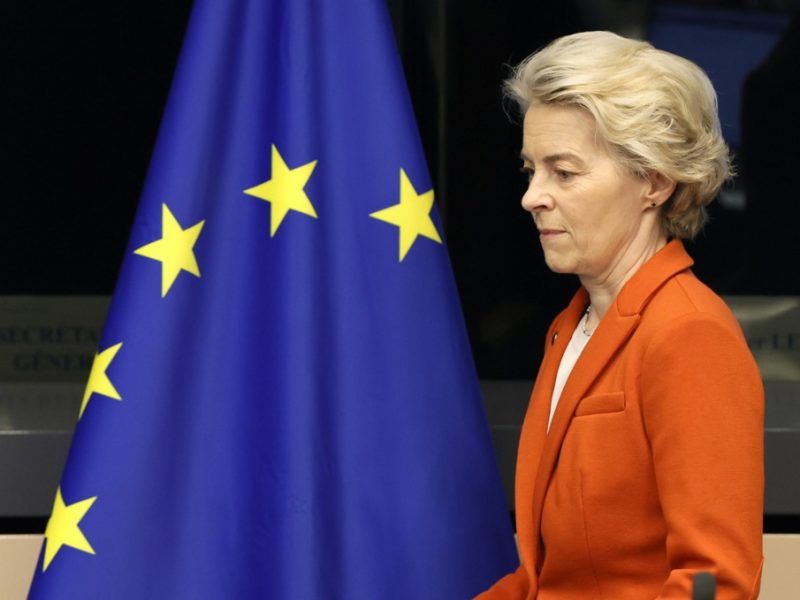
[Édité par Anne-Sophie Gayet et Laurent Geslin]

